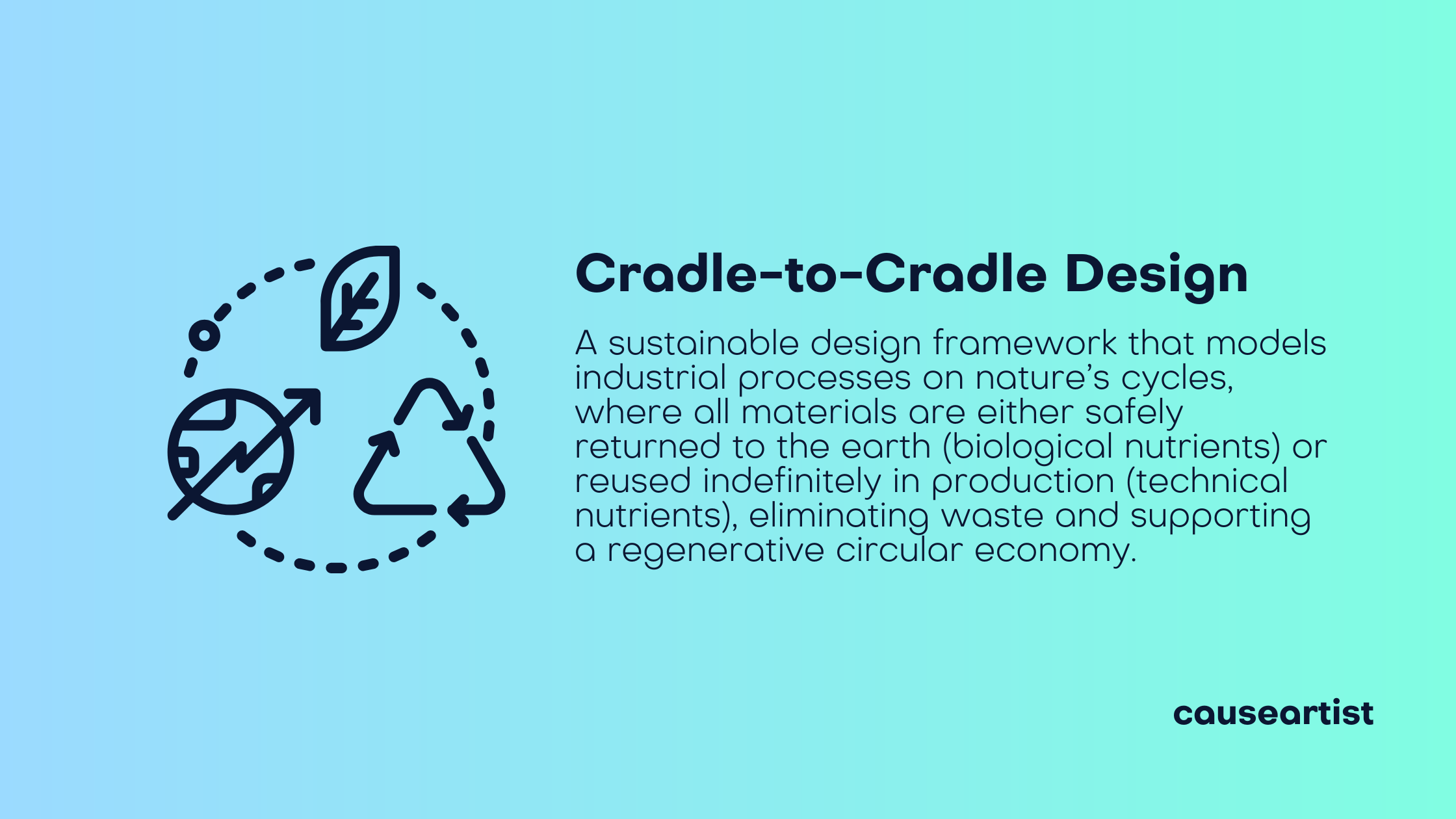Cradle-to-Cradle Design is a framework for creating products with the end of their life in mind — but in a positive, regenerative way.
The idea is simple:
🌱 Everything should either return to nature or be reused in an infinite industrial cycle.
It was popularized by architect William McDonough and chemist Michael Braungart in their groundbreaking book Cradle to Cradle: Remaking the Way We Make Things.
🚫 Cradle-to-Cradle vs. Cradle-to-Grave
Most products today follow a Cradle-to-Grave lifecycle:
- Raw materials are extracted
- Products are manufactured
- Used
- Then thrown away 🗑️
Cradle-to-Cradle flips this script:
✅ Materials are carefully selected
✅ Designed for reuse or biodegradability
✅ Either return to the earth or loop back into production

🌀 Key Principles of Cradle-to-Cradle Design
- Material Health 🧪
Use safe, non-toxic materials that are healthy for people and the planet. - Material Reutilization 🔄
Design products so they can be disassembled and reused, not landfilled. - Renewable Energy Use ⚡
Power the production process with renewable, clean energy. - Water Stewardship 💧
Treat water as a precious resource and manage it responsibly in the manufacturing cycle. - Social Fairness 🤝
Ensure ethical labor practices and contribute positively to the communities involved.
🔍 Real-World Examples of Cradle-to-Cradle
- Carpet Tiles by Interface
Designed to be taken back, disassembled, and recycled into new carpet. - Eileen Fisher’s Circular Fashion Program 👗
Reclaims old garments and remakes them into new pieces, reducing textile waste. - Method Cleaning Products 🧼
Uses packaging made from ocean plastic and formulas safe for greywater systems. - Herman Miller Chairs
Built with modular parts that can be recycled or replaced without throwing out the whole chair.
🏆 Cradle-to-Cradle Certified®
The Cradle to Cradle Certified® Product Standard is a globally recognized measure of sustainable product design.
Products are evaluated across five categories:
- Material Health
- Product Circularity
- Clean Air & Climate Protection
- Water & Soil Stewardship
- Social Fairness
This certification helps businesses and consumers identify products that truly meet circular economy principles 🌍.
🌎 Why Cradle-to-Cradle Matters
- ♻️ Reduces landfill waste
- 🌿 Promotes sustainable material innovation
- 🔋 Encourages renewable energy in production
- 💡 Drives innovation in product design
- 💚 Aligns with regenerative sustainability goals




